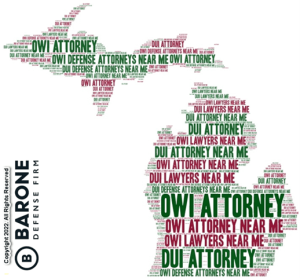Search
Barone Defense Firm Obtains Not Guilty on Troy Michigan Drunk Driving Jury Trial
The Barone Defense Firm is proud to announce a recent not guilty verdict on a Troy Michigan drunk driving case. The Barone Defense Firm Trial Attorney who handled the case was rising super-star Ryan Ramsayer. Here is Mr. Ramsayer’s synopsis of the case, including a summary of the not guilty trial:
Our client’s case arose out of Clawson, Michigan. The Troy District Court, a/k/a, the 52-4 Judicial District Court, is the court having jurisdiction over Clawson Michigan. There are two judges in Troy, the honorable Kirsten Nielsen Hartig and the honorable Maureen M. McGinnis, and Judge McGinnis presided over this jury trial.
As with all cases and clients at the Barone Defense Firm, while simultaneously preparing the case for trial, we attempted to avoid trial by engaging in plea negotiations with the prosecuting attorney. Despite Mr. Ramsayer’s best efforts to avoid trial, the arresting officer and prosecution would not offer less than an impaired. Our Client (hereafter BH, client’s initials used only so as to protect client confidentiality), had to then make the decision of whether to plead guilty take his case to trial. BH looked at the difference in penalties and decided that the trial was his best option. BH works in the auto industry setting up factories for production. For the last year he had been away most of the month in Spring Hill, TN or Buffalo, NY. His biggest fear, outside of driving, was that he had to go through Canada to get to Buffalo. Also, they have a factory in Canada that he could eventually be required to work at. To add extra intrigue, BH just found out that his wife is pregnant while this case was going. This complicated his decision because he knew that an OWI conviction would make it difficult to impossible to get into Canada, and so he knew if he was convicted he would probably lose his job. This meant there was a lot riding on the outcome of this trial.
 Michigan Criminal Defense Lawyer Blog
Michigan Criminal Defense Lawyer Blog


